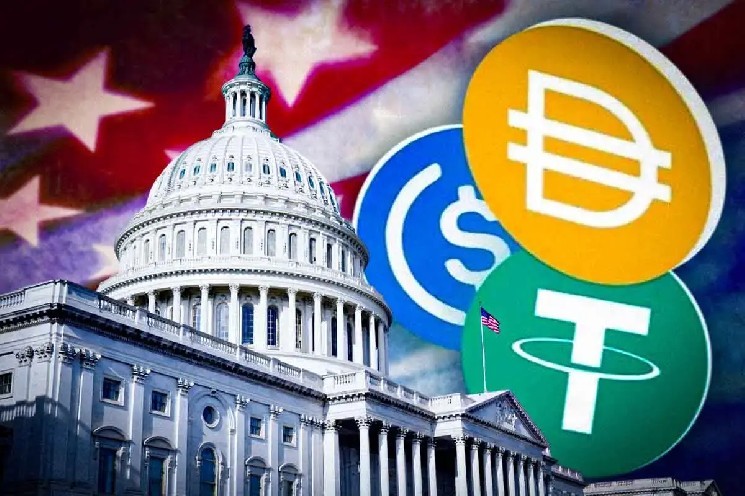Ripple CLO Supports CLARITY Act for US Crypto Regulatory Clarity

A significant stride has been achieved toward establishing clear regulations for digital assets in the United States with the introduction of the Digital Asset Market Clarity Act (CLARITY Act). Ripple’s Chief Legal Officer, Stuart Alderoty, has publicly endorsed this new legislation, hailing it as a pivotal advancement towards a clear and consistent regulatory framework for cryptocurrencies. He argued that “Clarity shouldn’t be controversial,” and expressed confidence that the bill will foster a practical and intelligent regulatory environment. Alderoty also acknowledged the crucial role of several prominent lawmakers, including Representatives French Hill, Congressman Glenn Thompson, Angie Craig, GOP Majority Whip Dusty Johnson, Don Davis, Bryan Steil, Ritchie, and Davidson, for their leadership in advancing these regulatory guidelines, which are vital as the digital assets space continues to accelerate.
Introduced on May 29, 2025, by a bipartisan group of Congress members, the CLARITY Act aims to delineate the regulatory responsibilities of the Securities and Exchange Commission (SEC) and the Commodity Futures Trading Commission (CFTC) concerning digital assets. A key objective of the bill is to categorize most cryptocurrencies as virtual commodities, placing them under the oversight of the CFTC, rather than treating them primarily as securities subject to the SEC's current regime. This legislative effort comes at a pivotal time, coinciding with the rising adoption and increasing market maturity of digital assets, which present new opportunities for broader economic integration. This view on the growing importance of digital assets is also shared by figures like MicroStrategy executive chairman Michael Saylor.
Supporters of the CLARITY Act, including Representative Bryan Steil, who noted the bill is designed to bring clarity during this "golden period" for digital assets, are united by the desire to foster the expansion of the digital assets sector by establishing a trustworthy and predictable set of laws. Currently, businesses and investors often face uncertainty regarding their activities, which can hinder the industry's progress. In line with this, Alderoty emphasized the bill’s importance in bringing “long-overdue clarity” to the digital asset landscape, suggesting it moves the industry closer to a “smart, workable framework” that successfully balances innovation with consumer protection. The act intends to draw up clear guidelines on how cryptocurrencies and digital assets can be effectively overseen.
The CLARITY Act also introduces a significant safe harbor provision. This provision offers a four-year safe harbor for primary token offerings, provided that the underlying network achieves a “mature blockchain system” status and the total funds raised remain below $75 million within any 12-month period. This measure is designed to provide compliant crypto issuers with a degree of protection from enforcement risk while they develop their networks.
Ripple, as a company, remains committed to advocating for regulatory clarity within the cryptocurrency industry, a stance underscored by Alderoty's support for the CLARITY Act. He had previously engaged the SEC by letter, urging the commission to clarify the specific point at which a digital asset ceases to be an investment contract. Alderoty contended that not all digital assets should be subject to the same securities regulations, particularly concerning secondary market transactions. This ongoing dialogue occurs as XRP, Ripple's associated digital asset, regains attention as a top crypto buy with the Ripple SEC lawsuit reportedly nearing a resolution. However, uncertainty persists, partly due to SEC Commissioner Hester Peirce’s recent “New Paradigm” speech, which posed the pivotal question: “When does a digital asset separate from an investment contract?” Ripple’s letter directly addressed this question.
In its response to the SEC, Ripple referenced established securities law analysis from legal experts such as Lewis Cohen. Cohen’s analysis posits that current U.S. investment contract law does not typically consider routine transfers of most fungible crypto assets in secondary markets as securities transactions. The introduction of the CLARITY Act suggests that the U.S. may finally be taking concrete steps toward providing the much-needed regulatory clarity for the crypto industry. While the bill is still under consideration in the legislative committee, its potential passage would establish a significant benchmark for the future of how U.S. regulators will oversee the burgeoning field of digital assets.








